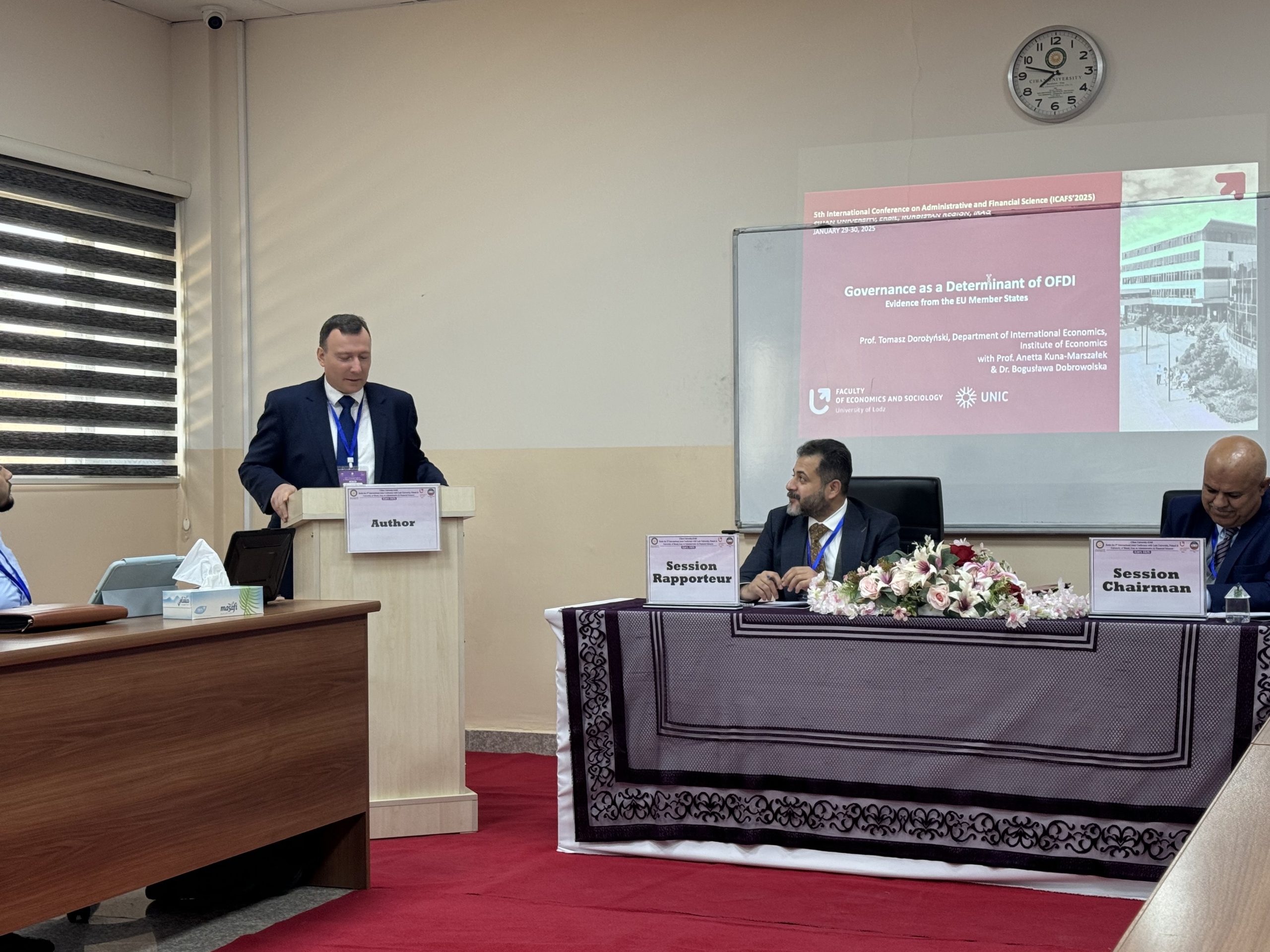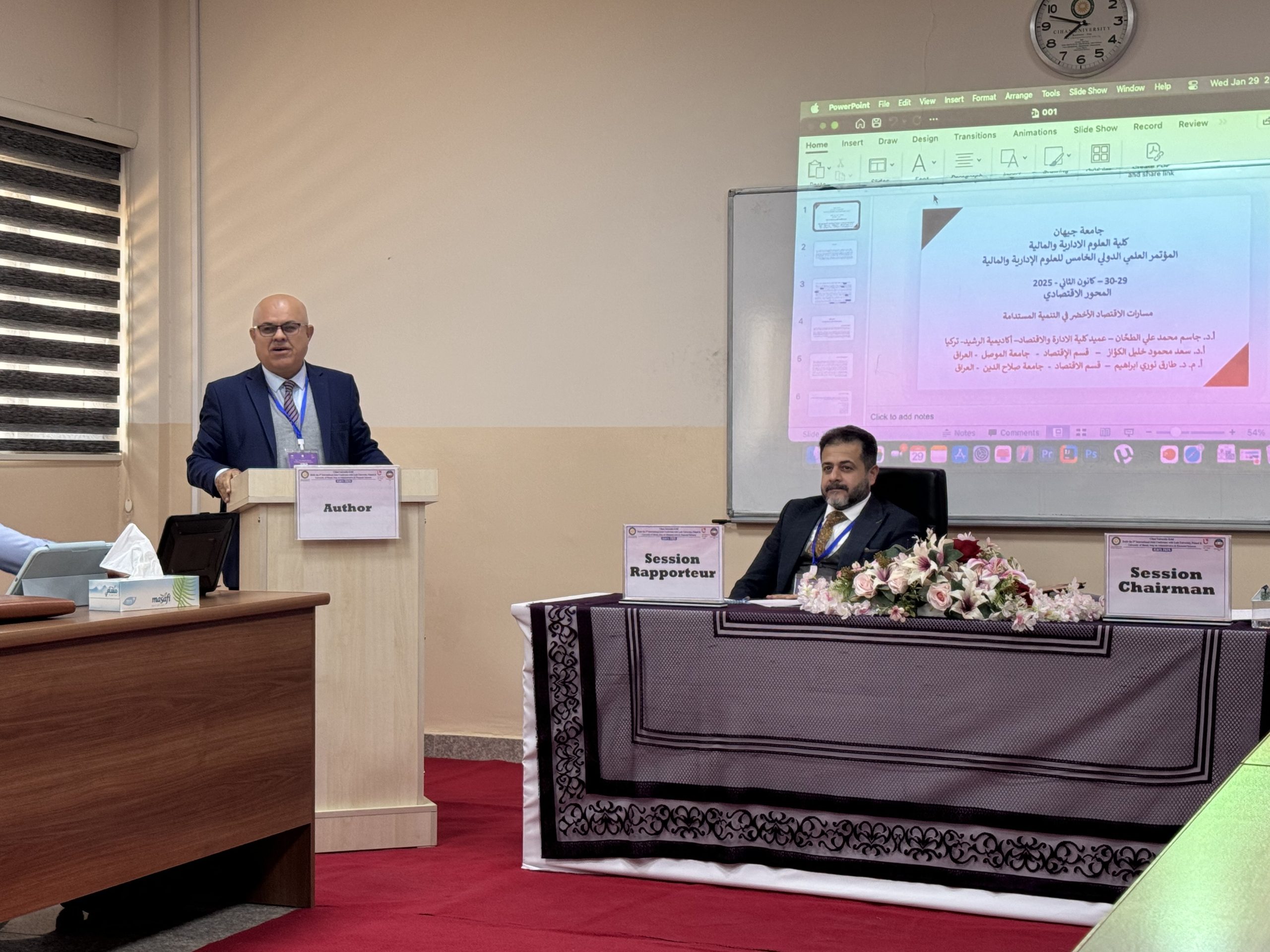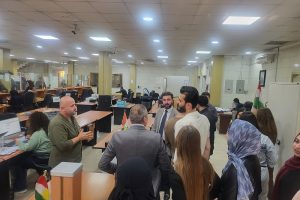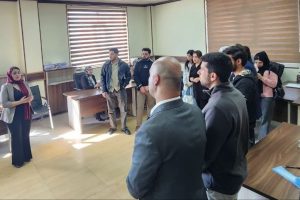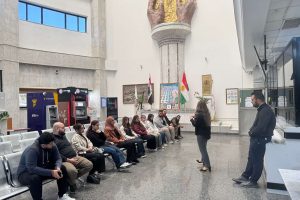Contemporary Economic Issues Addressed in the Fifth Session of the Fifth Scientific Conference on Administrative and Financial Sciences
As part of the scientific conference on management and finance, Cihan University – Erbil, in cooperation with the University of Lodz in Poland and the University of Mosul, organized a session on Contemporary Issues in Economics. The fifth session of the first day was held at the Cihan Academy Hall on Wednesday, January 29, 2025. This session was chaired by Professor Dr. Nozad Abdulrahman Al-Hiti, a distinguished academic from Qatar, and co-chaired by Lecturer Dr. Omer Rabeea Mahdi, an esteemed academic from the Kurdistan region of Iraq at Cihan University – Erbil.
The session featured five research papers. The first paper, presented by Professor Dr. Nozad Abdulrahman Al-Hiti, discussed the concept of the blue economy and its importance in achieving sustainable development by utilizing marine resources responsibly. The research focused on economic sectors related to oceans and seas and examined the challenges faced by Arab countries in adopting this model. Dr. Al-Hiti emphasized the vast potential these countries have to enhance the blue economy through environmental policies and sustainable investments. The study, which used the Red Sea region as a model, concluded with a call for increased regional cooperation to develop strategies that support the blue economy in the Arab world. The presentation sparked lively discussions among participants.
The second paper, titled “Governance as a Determinant of OFDI,” was presented by Mr. Tomasz Dorozynski. This study explored the impact of governance quality on outward foreign direct investment (OFDI) flows, highlighting the role of institutional frameworks, regulatory stability, and political factors in shaping international investment decisions. Mr. Dorozynski’s insights enriched the ongoing dialogue on contemporary economic challenges.
The third paper, “Long- vs Short-Term Orientation and Refinancing Risk of Public Debt – Evidence from EU Economies,” was presented by Mr. Tomasz Uryszek. The study analyzed the impact of long- and short-term fiscal orientations on the refinancing risk of public debt across EU economies. It examined how governments’ strategic debt management decisions influence financial stability, borrowing costs, and economic resilience. The research found a positive and strong correlation between the long-term orientation index and the maturity length of public debt. Countries with higher long-term orientation exhibited higher average terms to maturity (ATM) for public debt. The presentation sparked engaging discussions on the need for balanced debt policies to mitigate refinancing risks and ensure long-term economic sustainability.
The fourth paper, “The Digital Economy and Its Pivotal Role as a Real Stimulant for Economic Growth in Iraq for the Period 1995-2022,” was presented by Ms. Lora Basim Basher Al-Saoor and Mr. Saad Mahmood Khalel Al-Kooaz. This research reviewed the development of the digital economy in Iraq and its impact on various economic sectors. It highlighted how the digital economy has contributed to improving productivity, promoting entrepreneurship, and creating new job opportunities. The study also addressed challenges such as technological infrastructure and supportive policies, while exploring future opportunities for digital transformation in Iraq. The authors concluded that the digital economy can play a crucial role in diversifying Iraq’s economy and reducing its reliance on oil. The research emphasized the importance of supporting digital transformation to achieve sustainable economic growth in Iraq.
The final paper, titled “Purple Economy: Cultural Leadership in Sustainable Development,” was presented by Mr. Abdullah Fadhel Al-Hiyale. This research introduced the concept of the purple economy, which links culture and the economy. It emphasized the role of the purple economy in promoting sustainable development by investing in cultural and creative industries such as tourism, arts, and culture. The paper also provided examples of how the purple economy has supported economic growth and cultural diversity. Mr. Al-Hiyale argued that Iraq has a fertile environment for the successful implementation of the purple economy, with the potential to value and invest in its cultural sector to produce cultural goods and services. The session concluded with vibrant discussions on integrating the cultural dimension into economic policies to achieve more comprehensive and sustainable development.
Throughout the session, participants engaged actively in discussions, exploring the various economic concepts and their potential applications in the context of contemporary issues.
